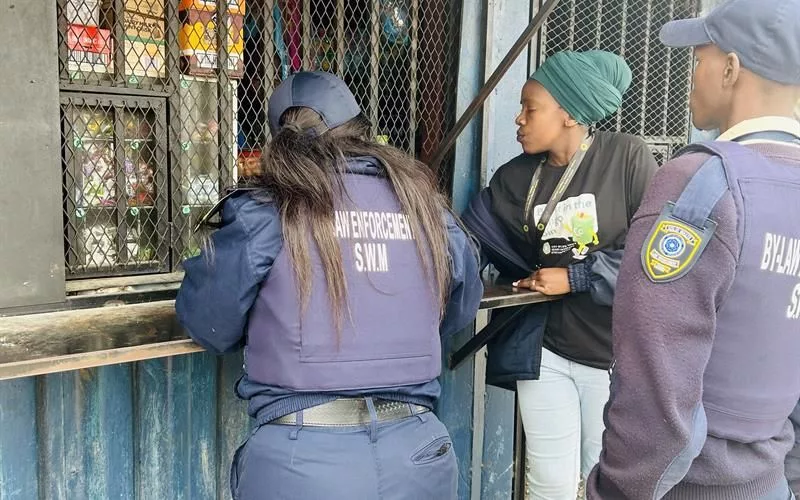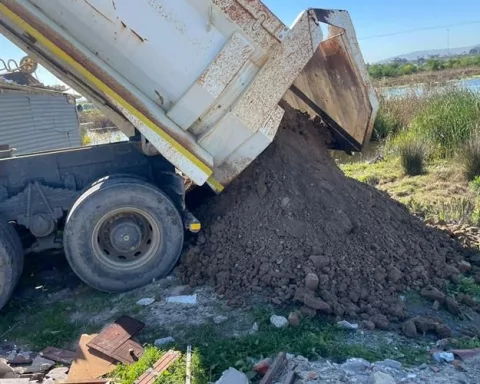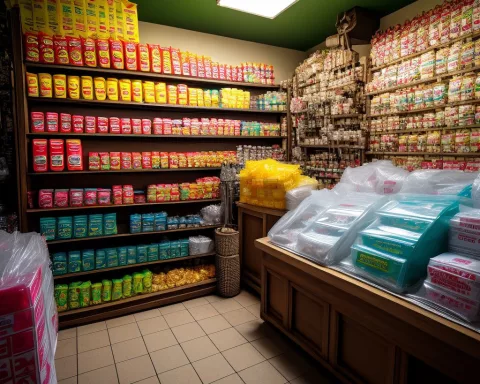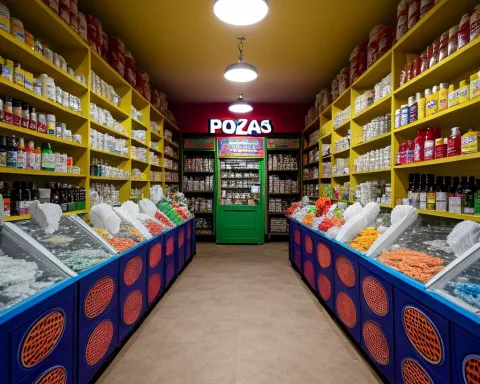Spaza shops in South African cities are taking on waste management by learning about their legal duties and civic responsibilities. The Urban Waste Management (UWM) Directorate’s Public Awareness team is educating local retailers about waste reduction and composting, which can help fight climate change. While most shop owners have responded positively, those who do not comply face severe penalties. This initiative highlights the power of local initiatives and shows that everyone has a role to play in creating a cleaner and healthier community.
How are spaza shops tackling waste management in South African cities?
Spaza shops in South African cities are taking on the challenge of waste management through education and intervention. The Urban Waste Management (UWM) Directorate’s Public Awareness team has launched a campaign to inform local retailers about their legal duties and civic responsibilities for waste management. The campaign includes waste reduction guidance and highlights the benefits of composting in reducing organic waste and fighting against climate change. While shop owners who fail to comply with regulations can face severe penalties, the initiative underscores the potential for positive change within communities.
Spaza shops, an integral part of the South African cityscape, serve as a testament to human inventiveness and adaptability within the bustling complexity of a modern city. These unassuming locations act as hosts to both the commonplace and the extraordinary, serving as a battlefield for the growing challenge of urban waste management.
A Mission Toward Waste Management
The Urban Waste Management (UWM) Directorate’s Public Awareness team has recently launched a unique initiative. This program aims to provide education to these local retailers about their legal duties regarding waste management, located in urban, peri-urban, and rural areas.
During the period between May 7 and May 22, 2024, the team made a total of 193 visits to spaza shops dispersed throughout diverse neighborhoods like Mfuleni, Gatesville, Greenville, Wallacedene, Site C, Capricorn, and Pelikan Park. Their mission was clear: to emphasize the importance of waste management, not merely a legal requirement, but a civic duty that fosters cleaner and healthier communities.
A Two-Phase Intervention
The intervention featured two distinct phases. The initial phase concentrated on informing traders about the necessity to arrange for waste collection from the City or approved waste management companies. While this may seem like a simple step, it’s fundamental to the operation of a large, modern city.
In the second phase of the campaign, the focus shifted to waste reduction. The traders received guidance on the necessary steps to decrease waste generated by their businesses. Interestingly, this segment of the intervention also highlighted the benefits of composting, both at their business premises and their homes.
The Role of Composting in Climate Change
The connection between organic waste and climate change is noteworthy. This link becomes visible when organic waste decomposes in a landfill in an oxygen-deprived environment. The UWM team, by advocating for composting, is not only promoting waste reduction but also participating in the broader battle against climate change. It highlights how local initiatives can create far-reaching impacts.
Reception and Enforcement
The response from the spaza shop owners, as reported by Alderman Grant Twigg, the City’s Mayoral Committee Member for Urban Waste Management, was largely positive. Many traders appreciated the support, acknowledging their part in preserving the community’s cleanliness and minimizing waste.
However, not all shop owners exhibited the same level of cooperation. For those who chose not to comply, the City’s UWM By-law Enforcement Unit can be called upon to enforce the regulations. The City also encourages its citizens to report any spaza shop found to be illegally dumping waste. A 24-hour toll-free line (0800 110077) is operational for this purpose.
Severe penalties await those found guilty of illegal dumping. Convicted offenders could face a fine of up to R5,000, the impounding of their vehicle, or even a two-year prison sentence. Conversely, the City offers rewards of up to R5,000 for any report that results in a fine and a conviction.
This intriguing initiative underscores a significant aspect of city life – cities are not mere spaces of anonymity and impersonality. They are spaces where communities unite to tackle mutual challenges, where ordinary spaces such as spaza shops can catalyze positive change. In this battle against waste and striving for a cleaner city, it’s apparent that everyone has a role to play. As Jane Jacobs eloquently put it, “cities have the capability of providing something for everybody, only because, and only when, they are created by everybody.”
What is the Urban Waste Management (UWM) Directorate’s Public Awareness team?
The Urban Waste Management (UWM) Directorate’s Public Awareness team is an initiative created to educate local retailers about their legal duties and civic responsibilities for waste management in South African cities. This team provides waste reduction guidance and highlights the benefits of composting to reduce organic waste and fight climate change.
Why is waste management important for cleaner and healthier communities?
Waste management is essential for creating cleaner and healthier communities in South African cities. Proper waste management helps reduce pollution, prevent the spread of disease, and preserve natural resources. By reducing waste through composting and other methods, cities can also reduce their carbon footprint, contributing to the fight against climate change.
What is the connection between organic waste and climate change?
When organic waste decomposes in a landfill in an oxygen-deprived environment, it can release harmful greenhouse gases like methane. These gases contribute to climate change by trapping heat in the atmosphere. Composting can help reduce the amount of organic waste going into landfills, reducing greenhouse gas emissions and fighting against climate change.
What happens to shop owners who do not comply with waste management regulations?
Shop owners who do not comply with waste management regulations can face severe penalties in South African cities. The Urban Waste Management (UWM) By-law Enforcement Unit can enforce the regulations, and shop owners can face fines, the impounding of their vehicle, or even a two-year prison sentence.
How can citizens report illegal dumping in South African cities?
Citizens in South African cities can report illegal dumping by calling the 24-hour toll-free line at 0800 110077. The City encourages its citizens to report any spaza shop found to be illegally dumping waste, and rewards of up to R5,000 are offered for any report that results in a fine and a conviction.
How can local initiatives create far-reaching impacts in waste management?
Local initiatives like spaza shops taking on waste management can create far-reaching impacts in South African cities. By educating traders about waste reduction and composting, local initiatives can reduce waste, fight climate change, and create cleaner and healthier communities. These initiatives also show that everyone has a role to play in waste management, from individuals to businesses and governments.












